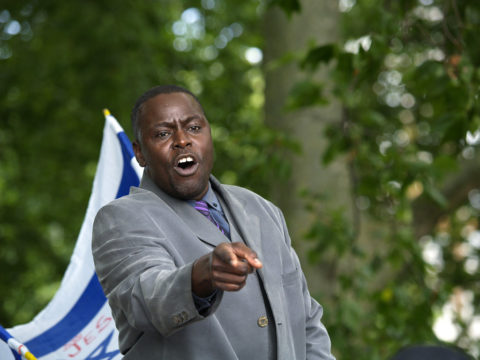In Tuesday’s NP Platformed, Colby Cosh pays tribute to one of the holy places of free speech, Speakers’ Corner:

“Speakers’ Corner – Hyde Park – London” by Manolo Blanco is licensed under CC BY-NC-SA 2.0
We detect a slightly surprising absence of international media commotion over a dreadful event that happened Sunday: a woman giving a critique of Islam at Speakers’ Corner in London’s Hyde Park was slashed in the face by a fanatic. The victim, 39-year-old Hatun Tash, is said to be a familiar figure at the Mecca of free speech. And, yes, NP Platformed uses this geographic metaphor intentionally.
Probably every country has sites consecrated to its distinctive political ideals. Speakers’ Corner is different: it represents the ideal of absolute free speech for, and to, the entire world. A non-American visiting the Lincoln Memorial is there to honour the memory of a great man; if he visits the Washington Monument, it’s probably for the purpose of making phallic-themed jokes. But for 150 years, non-Englishmen visiting Hyde Park, from Lenin to Bishop Tutu, have been awestruck by the freedom that radical speakers enjoy at the original among the world’s many Speakers’ Corners.
Few Londoners pay it much mind anymore — not since the 19th century, when the nigh-inviolable freedom of speech enjoyed on the corner actually served to endanger governments and give impetus to liberal social change. Since about 1900, it has mostly been a place, almost a rehearsal space, for the tireless cranks of any given moment: dietary Savonarolas, village atheists, suffragettes, Trots and syndicalists and Maoists. They have been joined by generations of Muslims preaching various Islamic doctrines or far-out varieties of the faith.
Foreigners, however, have often been astonished to discover that Speakers’ Corner mostly lives up to its ideals, or that any place could. The British state really lets those people say those things in public without locking them up. The park has seen plenty of affrays in its time, but fights have become rare as the ritual purpose of the space has become universally understood.
Rare, too, are the United Kingdom’s infringements on its inviolability. After the Bloody Sunday shootings of 1972, three Irish republicans were arrested under the Treason Felony Act of 1848 for having proposed war against Britain in Hyde Park. They were found guilty of lesser charges, sentenced to time served and sent back across the Irish Sea, but Irish nationalists rightly dined out on the incident for many years, and the criminal offence of “treason felony” has never since been heard of in any English courtroom.



